THE GREATEST THING IN THE WORLD
AND OTHER ADDRESSES
* * *
HENRY DRUMMOND
*
The Greatest Thing in the World
And Other Addresses
From an 1898 edition
ISBN 978-1-62011-339-4
Duke Classics
2012 Duke Classics and its licensors. All rights reserved.
While every effort has been used to ensure the accuracy and reliability of the information contained in this edition, Duke Classics does not assume liability or responsibility for any errors or omissions in this book. Duke Classics does not accept responsibility for loss suffered as a result of reliance upon the accuracy or currency of information contained in this book.
Contents
*
Introductory
*
I was staying with a party of friends in a country house during myvisit to England in 1884. On Sunday evening as we sat around the fire,they asked me to read and expound some portion of Scripture. Beingtired after the services of the day, I told them to ask HenryDrummond, who was one of the party. After some urging he drew a smallTestament from his hip pocket, opened it at the 13th chapter of ICorinthians, and began to speak on the subject of Love.
It seemed to me that I had never heard anything so beautiful, and Idetermined not to rest until I brought Henry Drummond to Northfield todeliver that address. Since then I have requested the principals of myschools to have it read before the students every year. The one greatneed in our Christian life is love, more love to God and to eachother. Would that we could all move into that Love chapter, and livethere.
This volume contains, in addition to the address on Love, some otheraddresses which I trust will bring help and blessing to many.
(signed) D.L. Moody.
Love: The Greatest Thing in the World
*
Every one has asked himself the great question of antiquity as of themodern world: What is the summum bonumthe supreme good? You havelife before you. Once only you can live it. What is the noblest objectof desire, the supreme gift to covet?
We have been accustomed to be told that the greatest thing in thereligious world is Faith. That great word has been the key-note forcenturies of the popular religion; and we have easily learned to lookupon it as the greatest thing in the world. Well, we are wrong. If wehave been told that, we may miss the mark. In the 13th chapter of ICorinthians, Paul takes us to
CHRISTIANITY AT ITS SOURCE;
and there we see, "The greatest of these is love."
It is not an oversight. Paul was speaking of faith just a momentbefore. He says, "If I have all faith, so that I can remove mountains,and have not love, I am nothing." So far from forgetting, hedeliberately contrasts them, "Now abideth Faith, Hope, Love," andwithout a moment's hesitation the decision falls, "The greatest ofthese is Love."
And it is not prejudice. A man is apt to recommend to others his ownstrong point. Love was not Paul's strong point. The observing studentcan detect a beautiful tenderness growing and ripening all through hischaracter as Paul gets old; but the hand that wrote, "The greatest ofthese is love," when we meet it first, is stained with blood.
Nor is this letter to the Corinthians peculiar in singling out love asthe summum bonum. The masterpieces of Christianity are agreed aboutit. Peter says, "Above all things have fervent love among yourselves."Above all things. And John goes farther, "God is love."
You remember the profound remark which Paul makes elsewhere, "Love isthe fulfilling of the law." Did you ever think what he meant by that?In those days men were working the passage to Heaven by keeping theTen Commandments, and the hundred and ten other commandments whichthey had manufactured out of them. Christ came and said, "I will showyou a more simple way. If you do one thing, you will do these hundredand ten things, without ever thinking about them. If you love, youwill unconsciously fulfill the whole law."
You can readily see for yourselves how that must be so. Take any ofthe commandments. "Thou shalt have no other gods before Me." If a manlove God, you will not require to tell him that. Love is thefulfilling of that law. "Take not His name in vain." Would he everdream of taking His name in vain if he loved him? "Remember theSabbath day to keep it holy." Would he not be too glad to have one dayin seven to dedicate more exclusively to the object of his affection?Love would fulfill all these laws regarding God.
And so, if he loved man, you would never think of telling him to honorhis father and mother. He could not do anything else. It would bepreposterous to tell him not to kill. You could only insult him if yousuggested that he should not stealhow could he steal from those heloved? It would be superfluous to beg him not to bear false witnessagainst his neighbor. If he loved him it would be the last thing hewould do. And you would never dream of urging him not to covet whathis neighbors had. He would rather they possessed it than himself. Inthis way "Love is the fulfilling of the law." It is the rule forfulfilling all rules, the new commandment for keeping all the oldcommandments, Christ's one
SECRET OF THE CHRISTIAN LIFE.
Now Paul has learned that; and in this noble eulogy he has given usthe most wonderful and original account extant of the summum bonum.We may divide it into three parts. In the beginning of the shortchapter we have Love contrasted; in the heart of it, we have Loveanalyzed; toward the end, we have Love defended as the supremegift.
I. THE CONTRAST.
Paul begins by contrasting Love with other things that men in thosedays thought much of. I shall not attempt to go over these things indetail. Their inferiority is already obvious.
He contrasts it with eloquence. And what a noble gift it is, thepower of playing upon the souls and wills of men, and rousing them tolofty purposes and holy deeds! Paul says, "If I speak with the tonguesof men and of angels, and have not love, I am become sounding brass,or a tinkling cymbal." We all know why. We have all felt thebrazenness of words without emotion, the hollowness, the unaccountableunpersuasiveness, of eloquence behind which lies no Love.
He contrasts it with prophecy. He contrasts it with mysteries. Hecontrasts it with faith. He contrasts it with charity. Why is Lovegreater than faith? Because the end is greater than the means. And whyis it greater than charity? Because the whole is greater than thepart.
Love is greater than faith, because the end is greater than themeans. What is the use of having faith? It is to connect the soul withGod. And what is the object of connecting man with God? That he maybecome like God. But God is Love. Hence Faith, the means, is in orderto Love, the end. Love, therefore, obviously is greater than faith."If I have all faith, so as to remove mountains, but have not love, Iam nothing."
It is greater than charity, again, because the whole is greater thana part. Charity is only a little bit of Love, one of the innumerableavenues of Love, and there may even be, and there is, a great deal ofcharity without Love. It is a very easy thing to toss a copper to abeggar on the street; it is generally an easier thing than not to doit. Yet Love is just as often in the withholding. We purchase relieffrom the sympathetic feelings roused by the spectacle of misery, atthe copper's cost. It is too cheaptoo cheap for us, and often toodear for the beggar. If we really loved him we would either do morefor him, or less. Hence, "If I bestow all my goods to feed the poor,but have not love it profiteth me nothing."

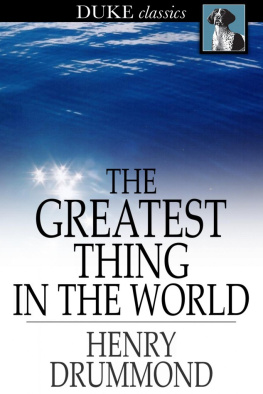
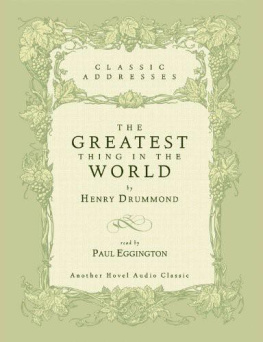
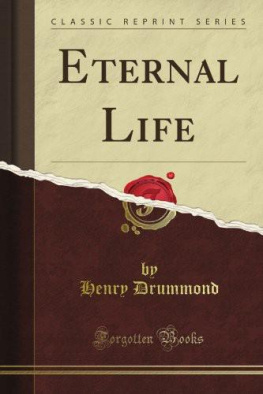
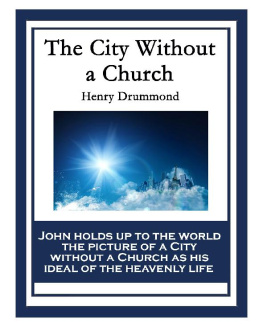


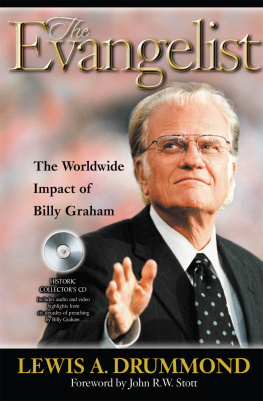


![Blessed John Henry Newman - Blessed John Henry Newman Collection [26 Books]](/uploads/posts/book/371011/thumbs/blessed-john-henry-newman-blessed-john-henry.jpg)



